The first Radical Open Access Conference (2015) responded to the proliferation of corporate profit-centred approaches to open access (OA) publishing and put forward a radical, scholar-led, non-profit alternative. This conference ultimately paved the way for the formation of the Radical Open Access Collective (ROAC), a community that, today, consists of around 80 not-for-profit presses, journals, and other open access projects promoting mutual support with ‘a shared investment in taking back control over the means of knowledge production in order to rethink what publishing is and what it can be.’
Ten years later, Radical Open Access III: From Openness to Social Justice Activism explored what is next for radical forms of open access (OA) publishing, moving beyond narrow discourses on openness toward social justice activism. The conference asked how the act of publishing itself – writing, editing, translating, reviewing, facilitating – might forge meaningful alliances with broader movements for social justice, critical care, anti-fascism, and planetary survival. Held on 10 and 11 April 2025 at the Milstein Room at Cambridge University Library, Radical OA III brought together a community of publishers, editors, librarians, and technologists across geographic, disciplinary, and institutional boundaries to discuss radical OA publishing as a site of collective experimentation, transformative critique of dominant academic and publishing structures, and mutual support across situated, social justice-oriented approaches. The hybrid conference was structured around three panels held across two afternoons.
The conference opened with a welcome and introduction by Samuel Moore (ROAC, Cambridge University Library), followed by the launch of the Publishing Activism within/without a Toxic University experimental conference booklet by Janneke Adema and Rebekka Kiesewetter (ROAC, Coventry University). Expanding the conversation beyond the conference, this experimental booklet brings together a series of short reflections from conference contributors and members of the ROAC on publishing activism and its relationship to the neoliberal university. It adapts and (ab)uses the cadavre exquis method, developed and practised by the Surrealists in the 1920s and 1930s, to foster collaborative, responsive forms of writing. The booklet departs from three key books published by members of the ROAC under licences that allow reuse. These books – Harney and Moten’s The Undercommons. Fugitive Planning & Black Studies (Minor Compositions), Luescher, Klemenčič, and Jowi’s Student Politics in Africa (African Minds), and Conio’s (ed.) Occupy. A People Yet to Come (Open Humanities Press) – focus on protest and activism, higher education and capitalism, and student politics and served as a starting point, reference, and inspiration for reflecting on the current condition of Higher Education (HE) from the position of social justice publishing activism.
This was followed by a tribute to the work of the open science advocate Florence Piron (1966-2021), who, throughout her career as a scholar, publisher, and activist, worked to transform the normative framework of scientific research in the name of cognitive justice – which, according to her own definition, ‘refers to an epistemological, ethical, and political idea that seeks to foster the emergence and free circulation of socially relevant knowledges across the planet’. Florence Piron put these principles into practice through initiatives such as the SOHA project (a transnational action-research project promoting open, locally rooted, and decolonial science in Francophone Africa and Haiti), the creation of science shops across Francophone Africa and Haiti (university‑affiliated facility that provides participatory research support to bring academic and non-academic communities and their communities closer together through joint projects, Le Grenier des savoirs (a cooperative digital platform supporting the creation and dissemination of African and Haitian open access journals), and the founding of the Diamond OA press Éditions Science et Bien Commun. The presentation was given by the editor and anthropologist Élisabeth Arsenault (Université de Montréal) and the musicologist and composer Sarah-Anne Arsenault (Université Laval, Québec).
The first panel, moderated by Janneke Adema, featured presentations from Ela Przybyło (Illinois State University, Feral Feminisms), Ashwani Sharma (darkmatter) Marc Herbst (Free University of Bozen-Bolzano, Journal of Aesthetics and Protest), and Jeff Pooley (University of Pennsylvania, mediastudies.press). The second day of the conference started with panel two, moderated by Rebekka Kiesewetter, including contributions by Simon Batterbury (University of Melbourne, Journal of Political Ecology), Angela Okune (Engaging Science, Technology, and Society), Stevphen Shukaitis (University of Essex, Minor Compositions), and Charmaine Pereira (Feminist Africa). The third and final panel, moderated by Toby Steiner (ROAC, Thoth Open Metadata), featured Lucy Barnes (Open Book Publishers), Lauren Smith (Queen Margaret University, Journal of Radical Librarianship), Magalí Rabasa (Lewis & Clark College Portland, Oregon), and Vincent van Gerven Oei (Dotawo, punctum books, Thoth Open Metadata).
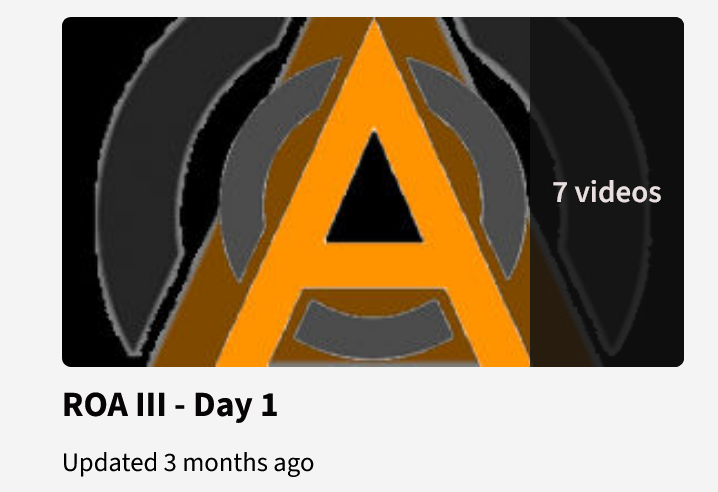
Situating Open Access Publishing in Contemporary Academia
Many contributors began with a critical diagnosis of the current scholarly publishing landscape. Since the postwar expansion of higher education, large corporations such as Elsevier, Springer Nature, and Taylor & Francis have steadily consolidated control over the infrastructures, processes and practices of scholarly knowledge creation, validation and dissemination – including peer review systems, submission platforms, citation tracking and metrics dashboards. These services are now packaged as supposedly cost- and time-efficient solutions for managing, assessing and distributing academic outputs, tailored to the demands of neoliberal universities competing in global knowledge economies. In this system – increasingly also in the humanities and social sciences – the metrics provided by these companies (such as journal rankings or citation counts) are used to assess scholarly performance, narrowing the definition of academic value to measurable research outputs. These outputs are often directly tied to job security, funding access and institutional status in a climate of scarcity (of jobs and resources, for example) – pressuring scholars to align their work with what is legible, trackable and institutionally rewarded. For example, to maximise visibility and hence citations, journals and publishers tend to privilege research in English that appears rigorous, transferable and globally relevant – which in practice often means empirical, objective and generalisable.
In this context, as Simon Batterbury (panel 2) noted, ‘the current publishing landscape in several disciplines and at many institutions is a de facto breach of academic freedom. Forcing scholars down a particular professionalisation route to get a job or to hold one – that feeds the commercial publishers.’ Angela Okune (panel 2) highlighted the impact on scholarly subjectivity and the epistemic effects of these normative pressures. She described how, by stepping outside academia, she felt freed
‘from the constraints of chasing a tenure-track job that would require me to be a solo author, stand out, stand on top, be number one, white supremacy culture. Instead, I forge collaboratively, walking together, instead of alone or apart, writing with rather than writing about … I’m freed of the alienation of performing objectivity. Instead, I can be matchmaker, notetaker, noisemaker’.
Ela Przybyło (panel 1), described the psychological strain of academic publishing under productivity-driven, output-focused and ableist conditions: ‘Universities make us unwell’. She suggested that publishing may at times function as ‘ancillary to wall production – to the unjust university’, referring to the reproduction of institutional barriers such as rigid publishing timelines, normative authorship expectations, metrics-driven evaluation and exclusionary editorial cultures that marginalise disabled, racialised and otherwise nonconforming scholars.
As other contributors stressed, governments, research funders, and universities have begun embedding OA requirements into broader frameworks of research evaluation and funding eligibility. In these contexts, OA publishing becomes directly tied to institutional and individual competitiveness, positioned as a prerequisite for securing grants, increasing international visibility, and sustaining a competitive edge in performance-based academic environments. As a result, scholars often experience OA publishing as an administrative obligation – detached from ethical, political, or intellectual commitments, and entangled with metrics-driven evaluations where the value of scholarship is measured by outputs and their quantified impact through citation counts and journal rankings, as Lucy Barnes (panel 3) stressed. Instead of treating OA publishing as a checkbox exercise in compliance, she added, ‘it’s really important to stop focusing on open access as an output and instead to talk about open access publishing in the way that many people have been doing at this conference, as a process and as a means to achieve socially just goals.’ Similarly, Angela Okune (panel 2) and Stevphen Shukaitis (panel 2) described (OA) publishing as something that unfolds through relational, situated, and often open-ended processes. Stevphen Shukaitis emphasised that ‘we should decenter the book or journal as the end goal. I love books, but my 13-year-old son doesn’t care about physical media. What matters isn’t the object – it’s the context. Books were meaningful to me because of the social relations around them – punk shows, zine trades, reading groups. Maybe the point isn’t the book itself, but what happens around it.’ Angela Okune similarly described publishing as a collaborative research methodology: ‘For us, the focus is on relationships – on making time to ask questions with one another.’
She emphasised the importance of experimental OA projects such as the experimental book pilot project Database as Book and Lively Community Archive her panel contribution evolved around, act as devices for developing ‘a shared vocabulary and skills to hone our imagination for other possibilities – other ways of writing, publishing, [and] sharing knowledge and information’, particularly when working across diverse institutional positions, skill sets, and lived experiences. For Okune, these projects form part of ‘an interim social-technical infrastructure’ that supports the cultivation of future alternatives – a process she described as ‘growing together’.
Doing Open Access Publishing Otherwise: Activism & Solidarity
Similar to Angela Okune (panel 2) other speakers located the origins of their OA initiatives in the tension between how institutions expect academic work and publishing to be done, how academics often internalise and reproduce these expectations, and how scholarly communities and their allies outside the university want to do this work based on their own political commitments, collective responsibilities and experiences of marginalisation. As Marc Herbst (panel 1) put it, there is always a ‘weight and pull between individual ambition, the clarity of what institutional structures demand, and the pull of politics, life, and time’.
As Lauren Smith (panel 3), a founding member of the Journal of Radical Librarianship recalled,
‘around 2014, a lot of librarians were angry online… We were disappointed in our professional body feeling that everything was … a bit uninspired in terms of action … someone said, “We should probably start a journal.” So we did … it was suggested that publishing work on radical librarianship in the form of an academic journal would be a way to bring theory and practice together’.
Similarly, for Ela Przybyło (panel 1), the journal Feral Feminisms emerged as an attempt to build ‘something else’ – a space for those pushed to the edges of the academy by its formal and informal walls: graduate students, artists, disabled scholars, creative writers, activists. As Przybyło put it, it was never just about journals or outputs:
‘It was about relationships, shared labour, and refusal. It was about making space – for each other, for alternative forms of scholarship, and for survival.’
Charmaine Pereira (panel 2) discussed the origin of the Feminist Africa journal in response to a lack of spaces for feminist thought and activism on the African continent. As she described, Feminist Africa, through their editorial practices, aims not only to produce and proliferate feminist knowledge but to sustain feminist community – through mentoring authors, fostering dialogue across texts, and holding scholarly and activist commitments in productive tension. Similarly, Vincent van Gerven Oei (panel 3) described the journal Dotawo as emerging from the disintegration of institutional infrastructure around Nubian studies and a need to support both scholarly collaboration and community access in contexts marked by colonial neglect and infrastructural precarity. The journal, hosted by the open access press punctum books, uses an open-source, low-bandwidth platform tailored for offline distribution – including through USB sticks – to ensure accessibility for scholars and communities in Egypt and Sudan.
As Simon Batterbury (panel 2) reflected,
‘The academic spring never took off… we’ve gone from protests and boycotts back to what I would argue is a … type of mutual aid, where we’re actually offering demonstrable models for journals and book publishing. We are not experimental. We’re looking to get readers and to offer a sound and very stable publication.’
As he continued, the Journal of Political Ecology is hosted by the University of Arizona Library, using Janeway – an open-source, scholarly publishing platform developed by the Open Library of Humanities (OLH) at Birkbeck, University of London – and is run with zero budget. ‘Our model is sustained by mutual aid and volunteer labour. I do all the copyediting, every reference, every DOI. I’ve personally edited over 950 articles. This is care work – time-consuming, but worth it.’ Ashwani Sharma (panel 1) described the journal darkmatter as a response to institutional constraints and epistemic violence – a post-institutional, unfunded project grounded in anti-racist and anti-colonial – not managerial, but reparative – countering the extractive logics of neoliberal publishing. Quoting Gayatri Chakravorty Spivak’s An Aesthetic Education in the Era of Globalization (2012), he stated: ‘Globalisation takes place only in capital and data. Everything else is damage control. Information command has ruined knowing and reading.’ In this context, darkmatter is a ‘journal without conditions’ – a refusal of academic legibility and an act of epistemological resistance to the violence of racial capitalism.
The Politics of Labour
Across the conference, contributors called attention to the politics of labour that underpin radical approaches to open access publishing. Many highlighted how this labour is often unpaid, precarious, and invisibilised – done in evenings, on weekends, or from sickbeds, without compensation, job security or institutional recognition. As Ela Przybyło (panel 1) noted,
‘first-time authors may proudly list their piece in Feral Feminisms on their CV, but they rarely see the hours of editorial spoon labour that got it there – by unpaid reviewers, overworked guest editors, and me, entering metadata into WordPress from bed.’
Several contributors acknowledged the difficulty of sustaining such labour in the long term. Many projects rely on what Simon Batterbury (panel 2) described as ‘a kind of mutual aid economy’ – driven by volunteer effort and collective goodwill. ‘Publishing like this is hard,’ he reflected. ‘You need time, energy, tech skills, and institutional cover. But it’s worth it. We provide access, visibility, and dignity to scholars marginalised by the commercial system.’ Marc Herbst (panel 1) offered a similarly situated reflection on the limits and realities of sustaining The Journal of Aesthetics and Protest. ‘Our journal never had a firm structure to hold it all together,’ he said. ‘It’s always been a kind of art project, shaped as much by life’s unpredictability as by design.’ Over time, its contributors have navigated illness, burnout, unemployment and dislocation – often without clarity about roles, timelines or outcomes. What kept the work going, he suggested, was not institutional scaffolding but fragile and persistent ties between people:
‘We are afraid, but we remain committed – to love, to struggle, to care.
To holding onto the theoretical narratives that once helped us believe something else was possible.’
Lauren Smith (panel 3) emphasised the need for more intentional community-building to support such fragile efforts. ‘Everyone is doing this work in their spare time, often in isolation,’ she said. ‘’Right now, tasks get done, but there’s little sense of active community. I know I have a role to play in changing that. It would be great to intentionally connect with others involved, especially since many of us are already casually connected online. As Dolly Parton said, doing it on purpose matters’.
Contributors also spoke about this labour as relational and affective – driven not by prestige or metrics, but by love, care, and shared purpose. Stevphen Shukaitis (panel 2), describing his work with Minor Compositions as a labour-intensive
‘side-hustle on top of a full-time academic job’, spoke of ‘a deliberate amateurism – in the original sense of the word: “amateur” from amator, a lover…
there’s a certain sense of doing things out of love, rather than for professional recognition or metrics.’
Angela Okune (panel 2) similarly reflected: ‘Now I carve time from a full-time job that pays the bills to enter collaborations I truly love – that nourish and fill me up, not collaborations for EU and US funding.’ These projects, she continued, are sustained in the ‘in-betweens’ of busy lives: ‘It’s never enough, but it’s always enough – to energise us, exhaust us with all the possibilities… It’s because we are in the in-betweens that it is still rewarding.’ Life, she added, ‘is always moving, alive – a gushing waterfall, an unexpected thunderstorm, a bottomless pothole. So there will never be a perfect time, a perfect collaboration, for a perfect knowledge.’
For some, the emotional and psychological toll of publishing was inseparable from its material precarity. Ela Przybyło (panel 1), reflected on how academic labour continues even when one is unwell, and how the pressures of productivity and institutional surveillance persist in moments of vulnerability. Drawing on insights from Mad Studies, she called for more expansive understandings of publishing – ones that centre refusal, rest, and collective care. ‘Mad people collaborate differently,’ she suggested – not through performance or co-signing, but through ‘reciprocity, mutual care, mutual recognition of suffering.’ Publishing, she added, must be capable of holding the messiness of being unwell, of being human.
This labour, while precarious, also sustains alternative infrastructures of care. Magalí Rabasa (panel 3) described how publishing rooted in amistad política – political friendship – offers a logic distinct from the academy or the market. It is, she argued, ‘a relation without an end – an endless loop shaped by shared intentions, but without predetermined outcomes’, enabling new forms of collective organisation, mutual support, and shared purpose. For Rabasa, care in publishing means attending to historically devalued forms of labour – especially those feminised and marginalised – and working toward conditions that make that care more possible and more just.
Radical Open Access beyond Openness
Shifting the focus in OA publishing away from openness as the default mode of research outputs shifts the labour in radical OA publishing towards ‘cultivating and sustaining the material, infrastructural, epistemological, and affective conditions’ (Rabasa) under which different ways of working, thinking, and relating around and through scholarly publications could be experimented with. A focus here was put on the existential and agency-sustaining dimensions of alternative editorial processes and practices – offering support communities among those working in isolation (Smith), the possibility of ‘survival’ in and against the violences of the university (Przybyło), and an attunement to unfinished, improvised, and often fugitive nature of collective scholarly work under conditions of uncertainty and constraint. Mark Herbst (panel 1) stressed: ‘Meanwhile, capitalism, planetary destruction, and systemic cruelty continue unabated. Our newest journal issue is about making arrangements. The submission call – still unreleased – will say something like this: We are afraid, but we remain committed. To love, to struggle, to care. To justice and equality’. For Ashwani Sharma (panel 1) darkmatter is a social project situated ‘within activist conviviality and sociality’. ‘Open access is only one prerequisite,’ he stated. ‘Damage control is a bare minimum for global social justice in the crisis of fascist racial capitalism.’ And for Vincent van Gerven Oei (panel 3), publishing is not the end point, but part of ‘a broader cultural and political ecology of survival,’ particularly for what he called ‘the minor humanities’: fields and languages on the edge of extinction, often unsupported by dominant academic systems. As he put it, open access publishing is ‘perhaps the only way’ to keep such worlds alive.
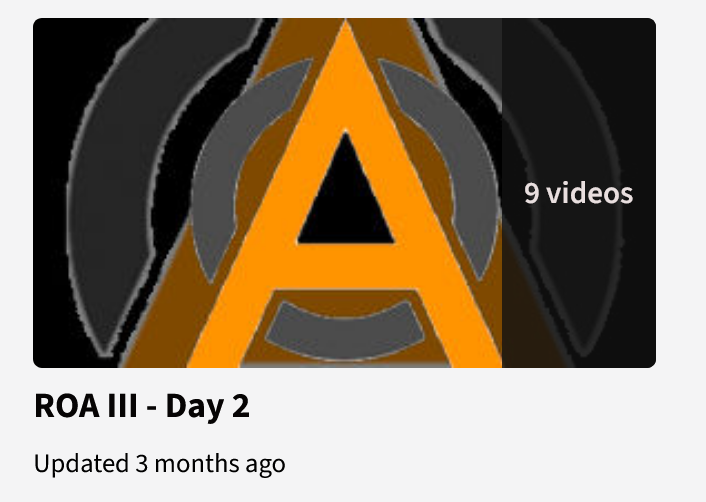
The vulnerability and contingency of these arrangements – and the positionality of the actors that sustain them – was also emphasised by other speakers. Contributors reflected on how they are differently situated in the hierarchies of funding, employment, institutional affiliation, and precarity. As Lucy Barnes (panel 3) noted, non-commercial, independent publishers such as Open Book Publishers can be more agile and responsive in times of political and institutional crisis:
‘If censorship or ideological restrictions arise within universities, we aren’t beholden to a single institution’s politics. We can support research that challenges the status quo.’
Similarly, Simon Batterbury (panel 2) highlighted the responsibility senior scholars such as himself have to use their relative security to support and protect alternative publishing efforts: ‘It’s a pretty lame conclusion, but I think people with the ability to do so should try and devote some fragments of their time to this sort of work. In universities that offer you just enough time to do it.’ Jeff Pooley (panel 1) echoed this call, pointing to the urgent need for more people to get involved in building and sustaining collective infrastructures: ‘These are still very fragile. But there’s a real window of opportunity right now. We don’t have to accept the market’s terms.’
As Lucy Barnes (panel 3) asked in her input, which also concluded the conference: ‘What more could we be doing – and doing collectively? In a time of financial, governmental, and ecological crisis, are there opportunities for change? Is this a moment for the Radical Open Access Collective? The status quo is breaking down. It no longer works for many. So – what next?’
Resources
📺 Video documentation of most panelists is available in two Peertube playlists dedicated to each of the two days of the conference, via FairTube:
- Day 1: https://fair.tube/w/p/cSN8u1x4jk4GfouaYAP5Pu
- Day 2: https://fair.tube/w/p/3njqqopvGpQHoqpVPz6hTw
📺 All videos are also available via the Internet Archive:
📃 Presentation slidedecks of most contributions are openly available on Zenodo, via https://doi.org/10.5281/zenodo.17252325
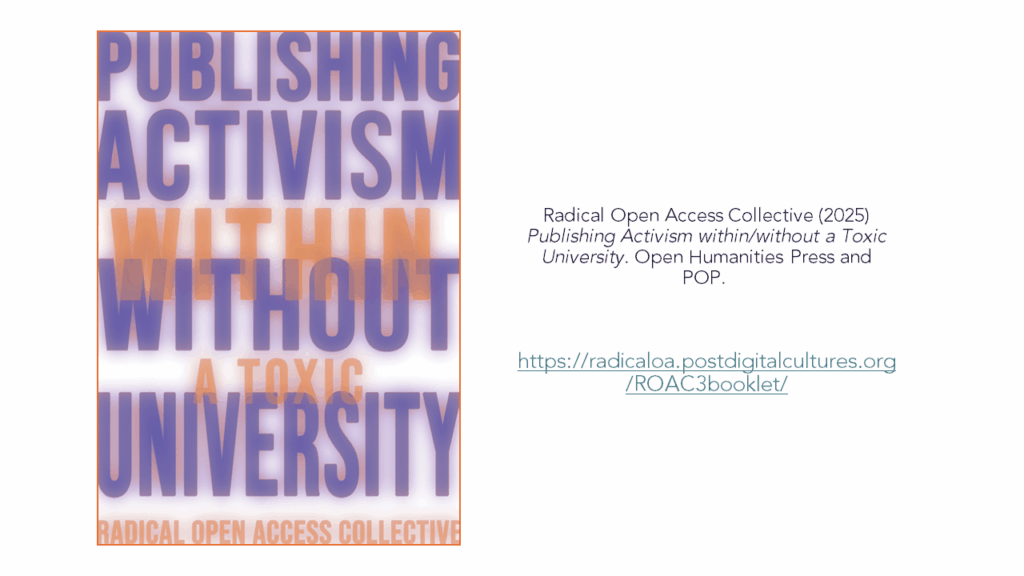
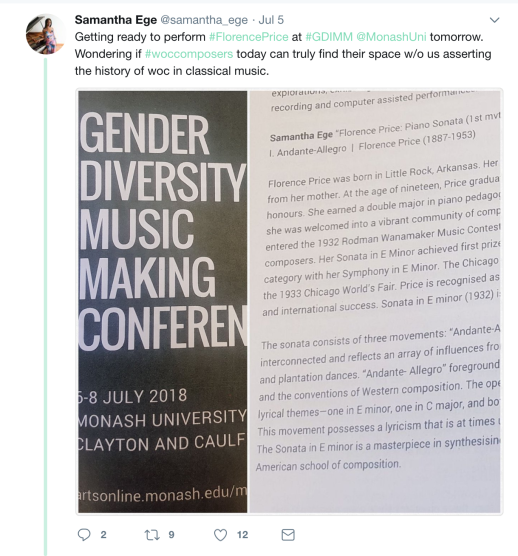
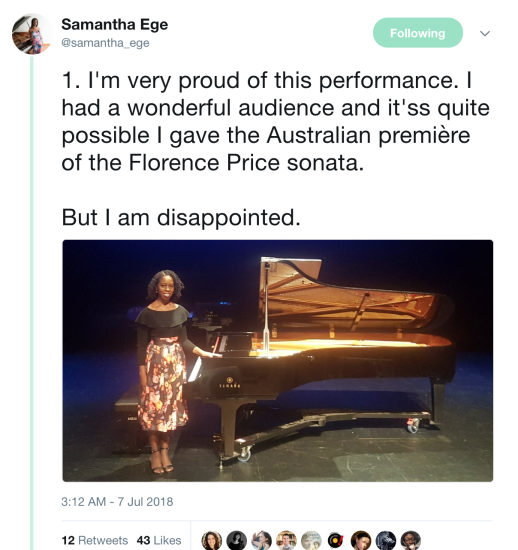

 Samantha Ege
Samantha Ege REWIND! . . .If you liked this post, you may also dig:
REWIND! . . .If you liked this post, you may also dig: